
Find Help
More Items From Ergsy search
-

Are water companies responsible for maintaining water infrastructure in the UK?
Relevance: 100%
-

How old is the water infrastructure in the UK?
Relevance: 99%
-
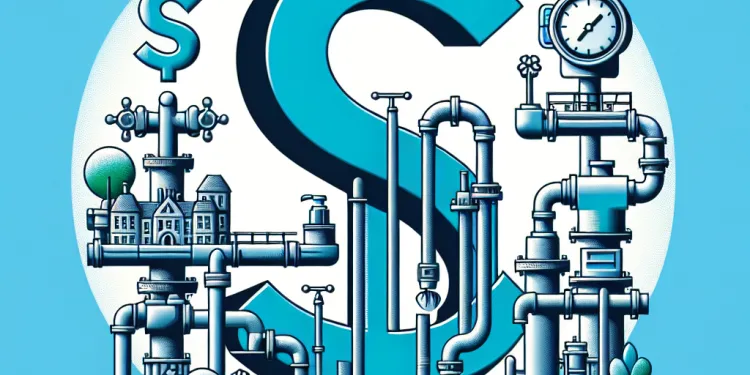
Are there penalties for not maintaining water infrastructure?
Relevance: 96%
-
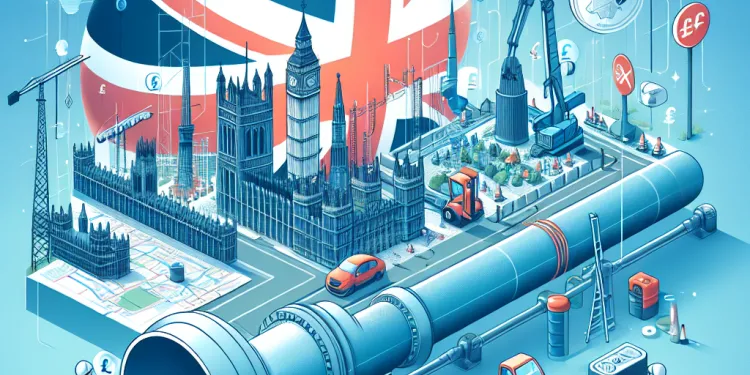
Do water companies have to update the infrastructure?
Relevance: 95%
-
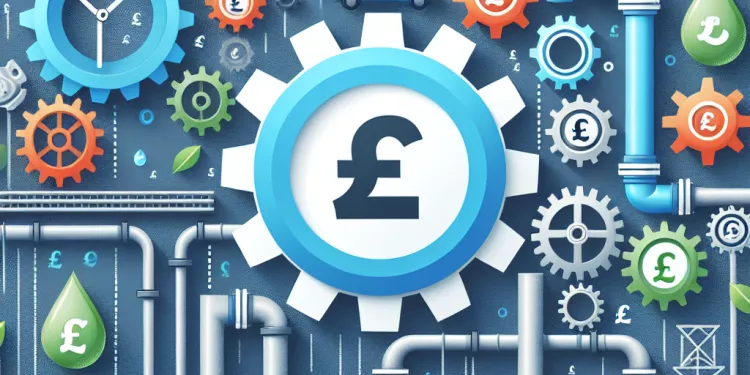
Are there initiatives to improve water efficiency in infrastructure?
Relevance: 93%
-

How do water companies fund infrastructure updates?
Relevance: 92%
-

Are water companies responsible to maintain and update infrastructure in the UK?
Relevance: 91%
-
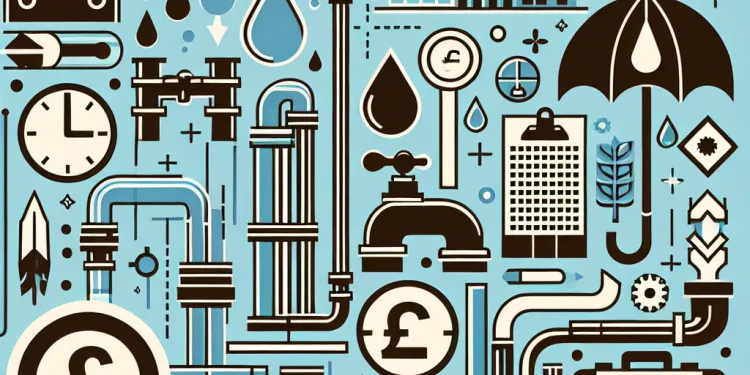
Do water companies have long-term infrastructure plans?
Relevance: 91%
-

What does water infrastructure maintenance involve?
Relevance: 91%
-
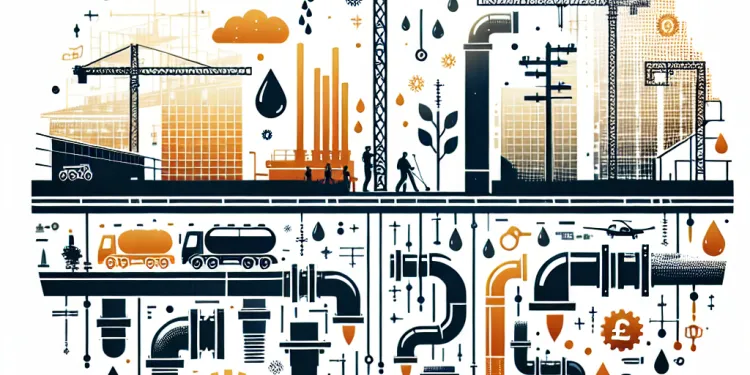
How are infrastructure priorities determined by water companies?
Relevance: 90%
-
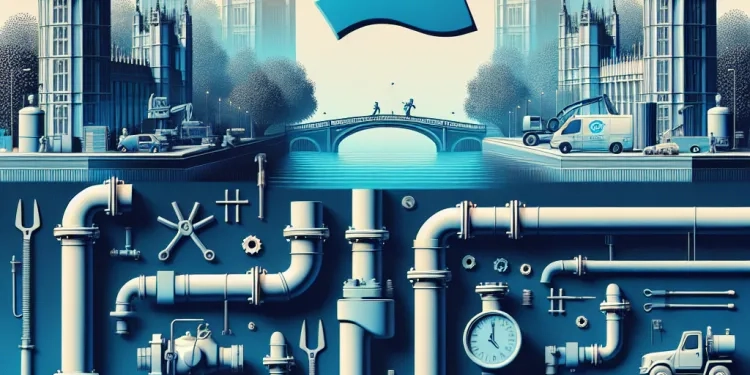
What challenges do water companies face in maintaining infrastructure?
Relevance: 87%
-

How much water is lost in the UK through poor infrastructure?
Relevance: 87%
-

How transparent are water companies regarding infrastructure improvements?
Relevance: 87%
-
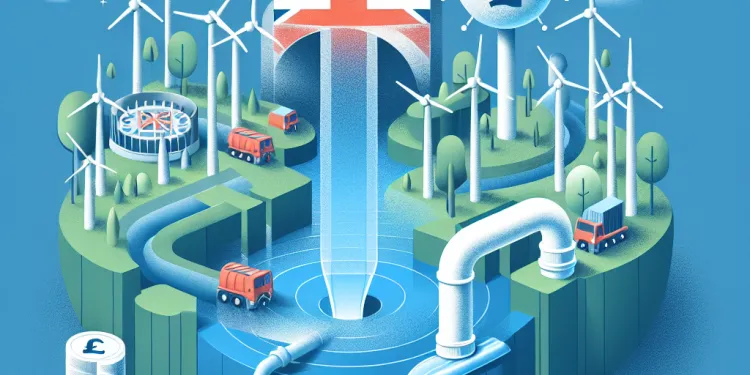
How does climate change affect water infrastructure maintenance?
Relevance: 85%
-
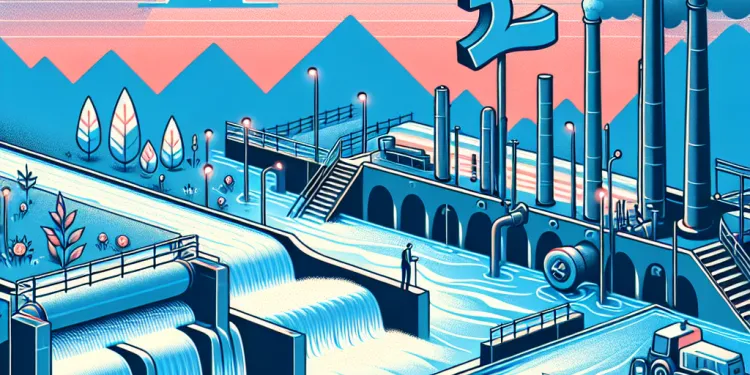
Can customers report issues with water infrastructure?
Relevance: 83%
-

How will refunds affect investments towards improving water infrastructure?
Relevance: 83%
-
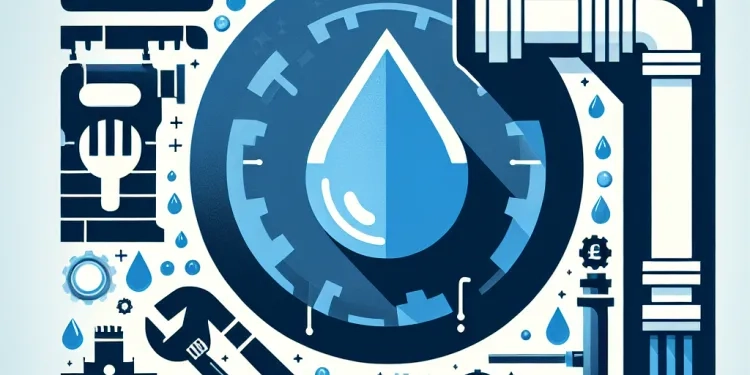
What are common signs of leaks in water infrastructure?
Relevance: 80%
-
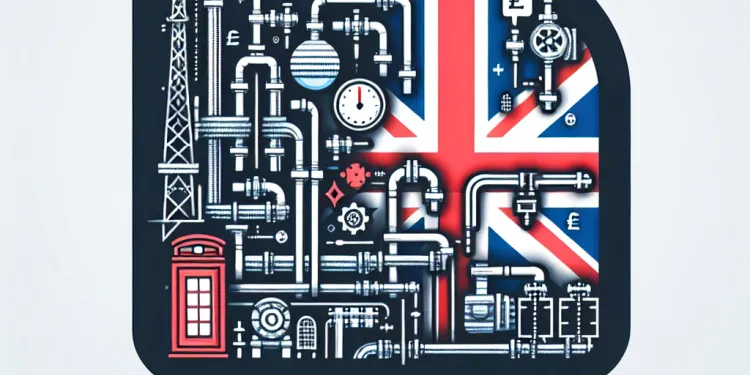
Are customers responsible for any part of the water infrastructure?
Relevance: 67%
-

How are water companies held accountable for infrastructure maintenance?
Relevance: 63%
-

What measures are being taken to address water loss in the UK?
Relevance: 62%
-
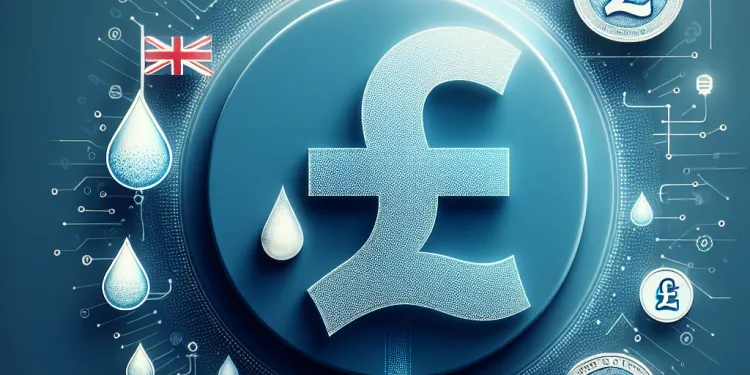
What are the financial implications of water loss for the UK?
Relevance: 61%
-

Why is it challenging to fix water leaks in the UK?
Relevance: 60%
-
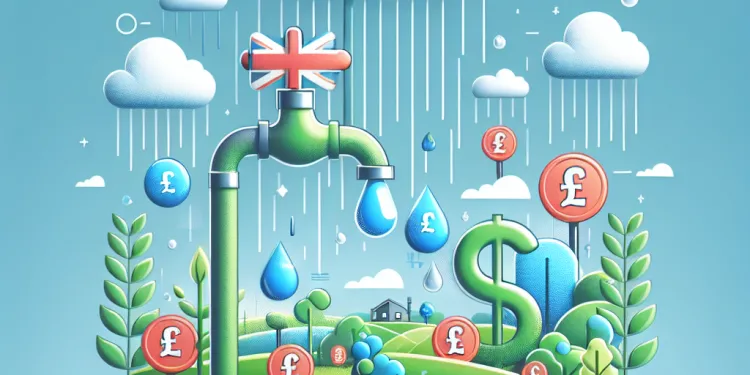
What causes water loss in the UK?
Relevance: 59%
-
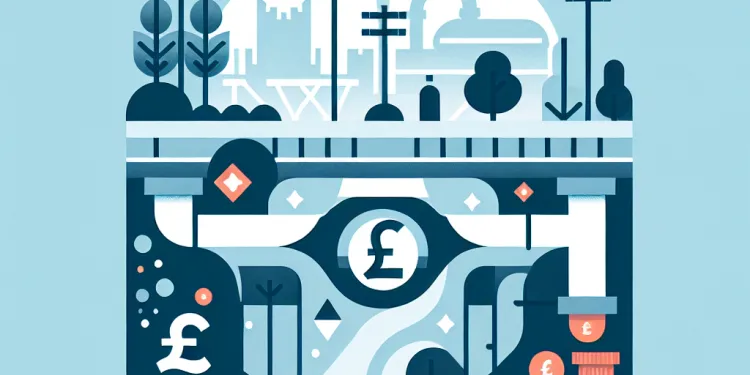
What role do water companies play in sewage pollution?
Relevance: 59%
-

What role do climate change and weather play in water infrastructure issues?
Relevance: 59%
-

Are there any government initiatives to tackle water loss in the UK?
Relevance: 58%
-

What impact does water loss have on the environment in the UK?
Relevance: 57%
-

How significant is the water loss problem in the UK?
Relevance: 57%
-
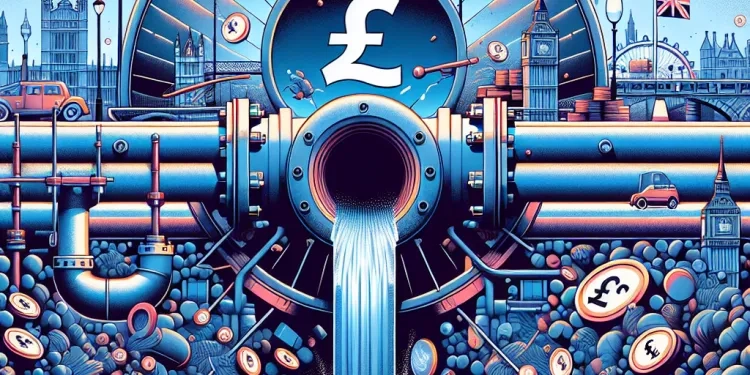
What happens if a water main bursts?
Relevance: 53%
-

How are new technologies helping to reduce water loss in the UK?
Relevance: 53%
-

Which UK water companies are going to refund their customers for poor performance?
Relevance: 53%
-

How do water companies detect leaks?
Relevance: 52%
-

What role does technology play in infrastructure maintenance?
Relevance: 51%
-

What is the role of a water regulator in my claim?
Relevance: 49%
-

Do these refunds mean water companies have increased their rates fraudulently?
Relevance: 48%
-

Does Thames Water enforce a hosepipe ban more than other water authorities?
Relevance: 48%
-

Are there penalties for water companies besides issuing refunds?
Relevance: 47%
-

Are there legal guidelines for sewage discharge into UK waters?
Relevance: 46%
-

Who regulates the performance and compliance of UK water companies?
Relevance: 46%
-

Why is infrastructure maintenance important?
Relevance: 46%
Introduction to the UK's Water Infrastructure
The water infrastructure in the United Kingdom is a crucial component of the country's utility services, catering to millions of residents and businesses. This system comprises various elements including reservoirs, treatment plants, pipelines, and distribution networks, all of which play a vital role in providing clean water and sanitation services. Understanding the age and condition of these infrastructures can highlight the challenges and potential needs for modernization.
Historical Development
The origins of the UK's water infrastructure can be traced back to Roman times when aqueducts and basic piping systems were first introduced. However, significant development began during the Victorian era in the 19th century, a period marked by rapid urbanization and industrial growth. The Great Stink of 1858, caused by the buildup of waste in the River Thames, forced the hand of London's authorities and led to the creation of a more organized sewage system designed by Sir Joseph Bazalgette. Much of this historical infrastructure is still in use, illustrating the long lifespan of many of these systems.
20th Century Expansion and Modernization
Throughout the 20th century, the UK's water infrastructure saw further expansion and modernization. Towns and cities expanded their networks to accommodate growing populations and the increasing demand for clean water and sanitation. New technologies and materials, such as iron and later plastic pipes, replaced older systems, especially in urban areas, improving reliability and efficiency. Comprehensive policies such as the establishment of water authorities in the 1970s aimed to standardize and improve the management and quality of water services across the country.
Current State and Challenges
Today, the UK's water infrastructure is a mix of historical and modern systems. While advancements have been made, there is still a significant portion of the network that is over 100 years old. The aging infrastructure poses challenges such as frequent leaks, bursts, and inefficiencies in water delivery. Companies continually assess and upgrade systems to meet present-day standards, often balancing the needs for investment with customer affordability and regulatory requirements.
Future Perspectives
Looking ahead, the UK faces the dual challenge of upgrading its old systems and meeting future demands. Climate change, population growth, and stricter environmental standards necessitate ongoing investment and innovation. The government's regulatory body, Ofwat, plays a critical role in overseeing and facilitating improvements in the sector. Programs focusing on smart technology, sustainable materials, and improved water conservation practices are key to ensuring the resilience and reliability of the UK's water infrastructure in the years to come.
Introduction to the UK's Water System
The water system in the UK is very important. It helps give water to people and businesses. The system includes places where water is stored, cleaned, and sent through pipes to homes and towns. Knowing how old these parts are can help us see if they need fixing or updating.
History of the Water System
A long time ago, the Romans built the first water systems in the UK. They used aqueducts and pipes. The big changes came in the 1800s, during the Victorian times. Cities got bigger, and they needed better water systems. In 1858, there was a bad smell from waste in the River Thames. This made the city make a better sewage system. A man named Sir Joseph Bazalgette helped design it. Many parts of this old system are still used today.
Changes in the 20th Century
In the 1900s, the water system changed a lot. Cities grew, and more people needed clean water. New pipes made of iron and later plastic replaced the old ones, making them better and stronger. In the 1970s, special groups were made to help manage water systems and make sure they are good quality.
How Things Are Now
Today, the UK's water system is a mix of old and new parts. Some parts are over 100 years old. This can cause problems like leaks and breaks. Water companies work hard to fix and upgrade these systems. They have to spend money carefully, so people can still afford water.
Looking to the Future
In the future, the UK needs to update its old water systems and prepare for new needs. Things like climate change and more people mean we need better systems. The group Ofwat helps watch over and improve water systems. They support using smart technology and saving water better. This will help make sure the UK's water system stays strong and reliable.
Tip: Tools like text-to-speech apps can help understand the information better.
Frequently Asked Questions
How old is the water infrastructure in the UK?
The age of the water infrastructure in the UK varies, with some pipes and other components dating back to the Victorian era, over 100 years old.
When was the UK's water infrastructure first developed?
The UK's water infrastructure began developing in earnest during the 19th century, especially with the advent of the Industrial Revolution.
Are there Victorian-era water pipes still in use in the UK?
Yes, there are still Victorian-era water pipes in use throughout the UK.
How is the age of water infrastructure in the UK managed?
The UK water infrastructure is managed through regular maintenance, upgrades, and replacement programs initiated by water companies.
What is the average age of water pipes in the UK?
The average age of water pipes in the UK is estimated to be around 70 years.
What challenges does the age of water infrastructure in the UK pose?
Aging water infrastructure can lead to issues like leaks, bursts, inefficiency, and increased maintenance costs.
How often are water pipes replaced in the UK?
Water pipes in the UK are typically replaced on a planned schedule as part of ongoing infrastructure improvement programs.
What is being done to modernize the water infrastructure in the UK?
The UK government and water companies are investing in modernization projects including pipe replacement, technology upgrades, and efficiency improvements.
Who is responsible for the water infrastructure in the UK?
Private water companies are primarily responsible for maintaining and upgrading water infrastructure in the UK.
Why is some of the UK water infrastructure so old?
Much of the UK's water infrastructure was built during the 19th and early 20th centuries and still remains in use due to its robustness and cost considerations.
Is the old water infrastructure in the UK a health risk?
Generally, no. The water infrastructure is maintained and tested regularly to ensure safety, though older systems can be more prone to issues.
Are there plans to replace all old water infrastructure in the UK?
While not all old infrastructure can be immediately replaced, there are ongoing plans to upgrade and replace aging parts over time.
How does the UK water infrastructure age impact climate change efforts?
Older infrastructure can be less energy efficient, so upgrading it can contribute to reducing emissions and supporting climate goals.
How does aging water infrastructure affect water quality in the UK?
Aging infrastructure can sometimes lead to issues like pipe corrosion, which can affect water quality if not properly managed.
What materials are used in the oldest parts of the UK's water infrastructure?
Older parts of the UK's water infrastructure may be made from materials like cast iron, lead, and early plastics.
How does the UK government support modernization of water infrastructure?
The UK government supports water infrastructure modernization through regulations, funding, and strategic planning in collaboration with private industry.
How does the age of UK's water infrastructure compare to other countries?
The UK's water infrastructure age is comparable to that of other developed countries with long histories, such as the US and parts of Europe.
What are some examples of improvements made to the UK water infrastructure recently?
Recent improvements include replacing lead pipes, using smart technology for leak detection, and enhancing treatment processes.
Why is it important to update the water infrastructure in the UK?
Updating water infrastructure is vital for ensuring reliability, safety, efficiency, and sustainability in the face of climate change and population growth.
How does the age of water infrastructure affect water bills in the UK?
Older infrastructure can lead to higher maintenance and repair costs, which may be reflected in water bills to fund necessary upgrades.
How old are the pipes and water systems in the UK?
The pipes and systems that bring water to homes in the UK are called water infrastructure.
They have been in place for many years. Some pipes are very old.
You can look at pictures or watch videos to learn more.
You can also ask someone to read with you if you need help.
The water pipes and parts in the UK are different ages. Some of them are very old, over 100 years old. They were made when Queen Victoria was alive a long time ago.
When did the UK start building water pipes and systems?
The UK began building water pipes and systems a long time ago.
Tools like audiobooks or visual aids can help us learn more.
In the 1800s, the UK started to build water systems. This was during a time called the Industrial Revolution when many new machines were made.
Are there any old water pipes from the Victorian times still being used in the UK?
Victorian times are a long time ago, around 150 years back. This time was named after Queen Victoria. During this time, people built a lot of things, like water pipes.
Some of these old water pipes might still be used today. Many of them have been replaced because they can wear out and leak. But a few might still be there.
If you want to learn more, you can watch videos or see pictures about old water pipes. You can also ask someone to help you read more about it.
Yes, there are still old water pipes from the Victorian times used in the UK.
How do people take care of old water pipes in the UK?
**UK people look after old water pipes:**
- Check pipes: They often check the pipes to see if they are okay.
- Fix problems: If something is broken, they fix it quickly.
- New pipes: Sometimes they put in new pipes to replace very old ones.
Here are some tools that can help:
- Pictures and diagrams: Help understand how pipes work.
- Videos: Shows how people fix pipes.
- Help from others: Asking someone to explain more if it's hard to understand.
Water systems in the UK are looked after by companies. They check them often and fix or update them when needed.
How old are most water pipes in the UK?
In the UK, most water pipes are about 70 years old.
What problems does old water equipment in the UK cause?
The UK's water pipes and systems are old.
This can cause problems, like:
- Water leaks, which means water gets wasted.
- Pipes breaking more easily.
- Clean water might mix with dirty water.
To help understand, you can:
- Look at pictures or videos about water pipes and systems.
- Use simple words to talk about water pipes at home or school.
Old water pipes and systems can cause problems. They might leak, break, not work well, or need lots of money to fix.
How often do we get new water pipes in the UK?
In the UK, old water pipes sometimes need changing.
How often does this happen?
We can use tools like pictures or videos to help us understand more about water pipes.
In the UK, old water pipes are changed for new ones on a set plan. This is done to keep the water system working well and to make it better over time.
For help with reading or understanding, you could use tools like text-to-speech software, which reads the text out loud.
What is being done to update water pipes and systems in the UK?
The UK is working to make water pipes and systems better and newer. This will help bring clean water to homes and take dirty water away. Here are some ways they are doing this:
- Fixing old pipes so they don't break.
- Putting in new pipes that are stronger.
- Using smart machines to find and stop leaks.
- Making water-cleaning places better.
These changes help make sure we have good, clean water. If reading is hard, you can ask someone to read it to you. Using pictures might also help you understand better.
The UK government and water companies are working on projects to make things better. They are putting in new pipes, using better technology, and finding ways to save water.
Who takes care of water pipes and systems in the UK?
In the UK, there are different companies that take care of water pipes and systems. They make sure you have clean water in your home.
These companies fix pipes if they break. They also make sure dirty water goes away safely.
If you have questions or problems with your water, these companies can help you.
Use tools like pictures or videos to learn more about how water gets to your home.
Private water companies take care of the pipes and systems that bring water to our homes in the UK.
Why is UK water stuff so old?
The pipes and water things in the UK are old because they were put in a long time ago. Back then, people made things to last, so we still use them now.
Changing them is really hard and costs a lot of money. So, we keep using the old ones until we really need to fix them.
If you want to learn more, you can use tools like pictures or videos. These can help explain things in an easy way.
A lot of the UK's water pipes and systems were made a long time ago, in the 1800s and early 1900s. We still use them today because they are strong and it would cost a lot of money to change them.
Can old water pipes in the UK make people sick?
No, usually not. People check and fix water pipes often to keep water safe. But old pipes can have more problems.
Is the UK going to change all old water pipes and systems?
We can't change old things all at once, but there are plans to fix and update old stuff little by little.
How do old water pipes in the UK affect climate change efforts?
The UK has many old water pipes. Old pipes can leak. Leaks waste a lot of water.
Wasting water is bad for the environment. It makes it harder to fight climate change.
Fixing or replacing old pipes helps save water. Saving water is good for the planet.
Here are some ways to understand better:
- Use pictures or drawings to see how water pipes work.
- Watch videos about fixing old water pipes.
Old buildings and roads use more energy. Fixing them to use less energy helps the environment. This is good for the planet.
How does old water systems change water quality in the UK?
Old pipes and water systems can make water unsafe to drink.
Here’s why:
- Pipes can break or rust, making the water dirty.
- Sometimes, pipes leak and let bad stuff in.
To make it better:
- New pipes are needed.
- Check water regularly to make sure it is clean.
Old pipes can get rusty. This can make water not safe to use if we don't take care of it.
What things were used to build the oldest water pipes in the UK?
The question asks about the stuff used to make old water pipes in the UK. Water pipes are tubes that bring water to homes and places.
If you find this hard to read, you can use a tool that reads the text aloud to you.
It's okay to ask someone for help if you need it!
In the UK, some old water pipes are made from things like iron, lead, and plastic. These things were used a long time ago.
Tools like picture dictionaries can help everyone understand better. Picture dictionaries show pictures with words. This makes reading easy and fun!
How does the UK help improve water pipes and systems?
The UK government helps make water pipes and systems better. They give money to fix old pipes and build new ones. They use special technology to check pipes and find leaks.
The government also makes rules to keep water clean and safe. They help companies work together to find new ideas for water systems.
To learn more, you can use pictures and videos. These can help you see how water systems work.
The UK government helps to make water systems better. They do this by making rules, giving money, and planning with companies.
How old are the UK’s water pipes compared to other countries?
Do the UK’s water pipes compare in age to those in other countries?
You can use these helpful tools:
- Pictures: Look at pictures to understand better.
- Videos: Watch videos about water pipes in different countries.
- Ask an Adult: Talk to an adult to learn more.
The UK's water pipes and systems are old. Many other places with long histories, like the US and some parts of Europe, have old water systems too.
What new things have made the UK's water system better lately?
We use many things every day that help make the water system work well. Sometimes, these things are fixed or made better. Below are some examples of how the UK's water system has been improved:
- New Pipes: Old pipes are replaced with new ones to stop leaks.
- Water Treatment: Better cleaning of water to make it safe to drink.
- Smart Meters: These help us see how much water we use.
- Flood Defenses: Building walls or barriers to stop floods.
These changes help us have clean water and prepare for all kinds of weather. If you're interested, ask someone to help you find more information or watch videos on the internet.
Lately, we've made water systems better by doing three things:
1. We took out old pipes made of lead and put in safe, new ones.
2. We use smart tools to find water leaks.
3. We have improved the way we clean the water.
For help with reading, you can use tools like reading apps that read the text out loud.
Why should we fix water pipes and systems in the UK?
Keeping water pipes and systems in good shape is very important. Here’s why:
- Clean Water: We need clean water to drink, wash, and cook.
- Stop Leaks: Fixing old pipes stops water from leaking and being wasted.
- Stay Healthy: Good water systems help keep everyone healthy.
- Save Money: Fixing things now can stop big problems later, which saves money.
Tools that can help you understand:
- Watch videos about water systems.
- Use pictures or drawings to see how pipes work.
- Talk with someone who works with water systems.
We need to fix and improve our water systems. This is very important. It helps make sure our water is safe, works well, and lasts a long time. This is extra important because the weather is changing and there are more people now.
How do old water pipes change water bills in the UK?
Old pipes and systems can break and need fixing. Fixing them costs money. This might make our water bills higher to pay for the repairs.
Useful Links
This website offers general information and is not a substitute for professional advice.
Always seek guidance from qualified professionals.
If you have any medical concerns or need urgent help, contact a healthcare professional or emergency services immediately.
Some of this content was generated with AI assistance. We’ve done our best to keep it accurate, helpful, and human-friendly.
- Ergsy carfully checks the information in the videos we provide here.
- Videos shown by Youtube after a video has completed, have NOT been reviewed by ERGSY.
- To view, click the arrow in centre of video.
- Most of the videos you find here will have subtitles and/or closed captions available.
- You may need to turn these on, and choose your preferred language.
- Go to the video you'd like to watch.
- If closed captions (CC) are available, settings will be visible on the bottom right of the video player.
- To turn on Captions, click settings .
- To turn off Captions, click settings again.
More Items From Ergsy search
-

Are water companies responsible for maintaining water infrastructure in the UK?
Relevance: 100%
-

How old is the water infrastructure in the UK?
Relevance: 99%
-

Are there penalties for not maintaining water infrastructure?
Relevance: 96%
-

Do water companies have to update the infrastructure?
Relevance: 95%
-

Are there initiatives to improve water efficiency in infrastructure?
Relevance: 93%
-

How do water companies fund infrastructure updates?
Relevance: 92%
-

Are water companies responsible to maintain and update infrastructure in the UK?
Relevance: 91%
-

Do water companies have long-term infrastructure plans?
Relevance: 91%
-

What does water infrastructure maintenance involve?
Relevance: 91%
-

How are infrastructure priorities determined by water companies?
Relevance: 90%
-

What challenges do water companies face in maintaining infrastructure?
Relevance: 87%
-

How much water is lost in the UK through poor infrastructure?
Relevance: 87%
-

How transparent are water companies regarding infrastructure improvements?
Relevance: 87%
-

How does climate change affect water infrastructure maintenance?
Relevance: 85%
-

Can customers report issues with water infrastructure?
Relevance: 83%
-

How will refunds affect investments towards improving water infrastructure?
Relevance: 83%
-

What are common signs of leaks in water infrastructure?
Relevance: 80%
-

Are customers responsible for any part of the water infrastructure?
Relevance: 67%
-

How are water companies held accountable for infrastructure maintenance?
Relevance: 63%
-

What measures are being taken to address water loss in the UK?
Relevance: 62%
-

What are the financial implications of water loss for the UK?
Relevance: 61%
-

Why is it challenging to fix water leaks in the UK?
Relevance: 60%
-

What causes water loss in the UK?
Relevance: 59%
-

What role do water companies play in sewage pollution?
Relevance: 59%
-

What role do climate change and weather play in water infrastructure issues?
Relevance: 59%
-

Are there any government initiatives to tackle water loss in the UK?
Relevance: 58%
-

What impact does water loss have on the environment in the UK?
Relevance: 57%
-

How significant is the water loss problem in the UK?
Relevance: 57%
-

What happens if a water main bursts?
Relevance: 53%
-

How are new technologies helping to reduce water loss in the UK?
Relevance: 53%
-

Which UK water companies are going to refund their customers for poor performance?
Relevance: 53%
-

How do water companies detect leaks?
Relevance: 52%
-

What role does technology play in infrastructure maintenance?
Relevance: 51%
-

What is the role of a water regulator in my claim?
Relevance: 49%
-

Do these refunds mean water companies have increased their rates fraudulently?
Relevance: 48%
-

Does Thames Water enforce a hosepipe ban more than other water authorities?
Relevance: 48%
-

Are there penalties for water companies besides issuing refunds?
Relevance: 47%
-

Are there legal guidelines for sewage discharge into UK waters?
Relevance: 46%
-

Who regulates the performance and compliance of UK water companies?
Relevance: 46%
-

Why is infrastructure maintenance important?
Relevance: 46%


